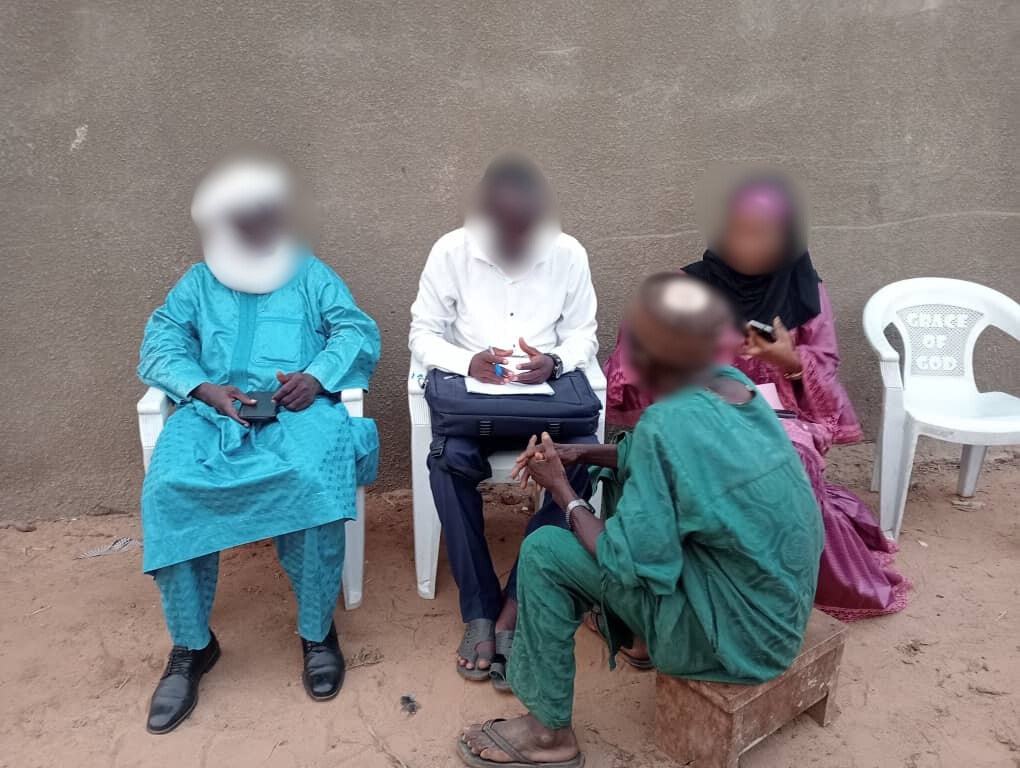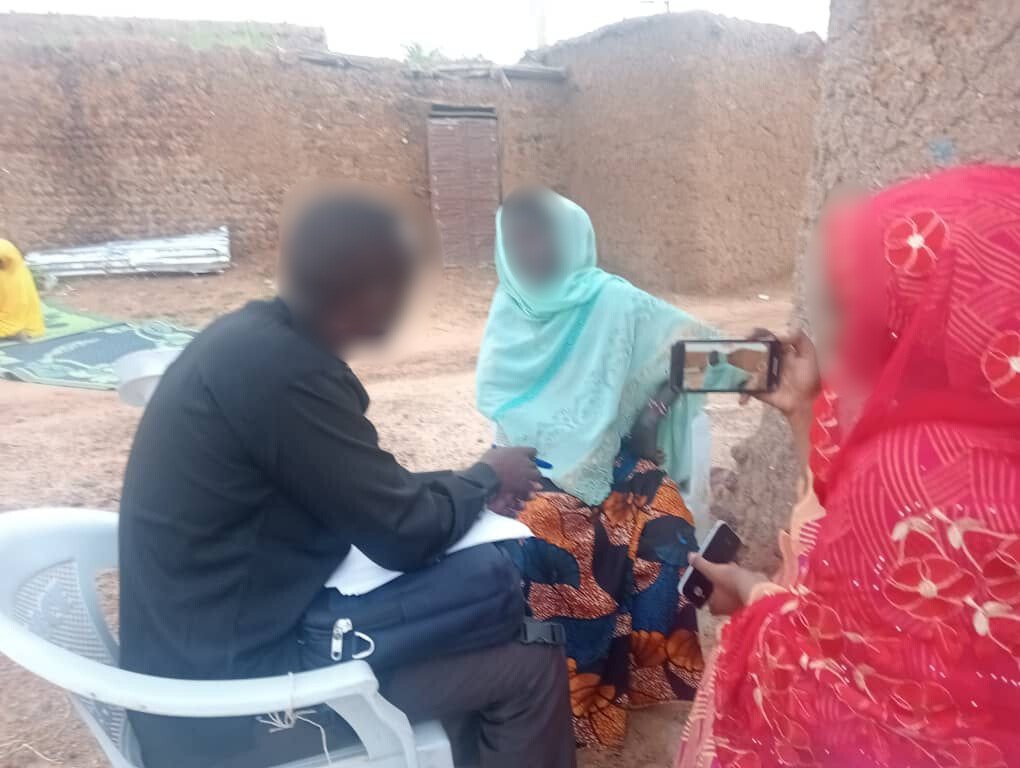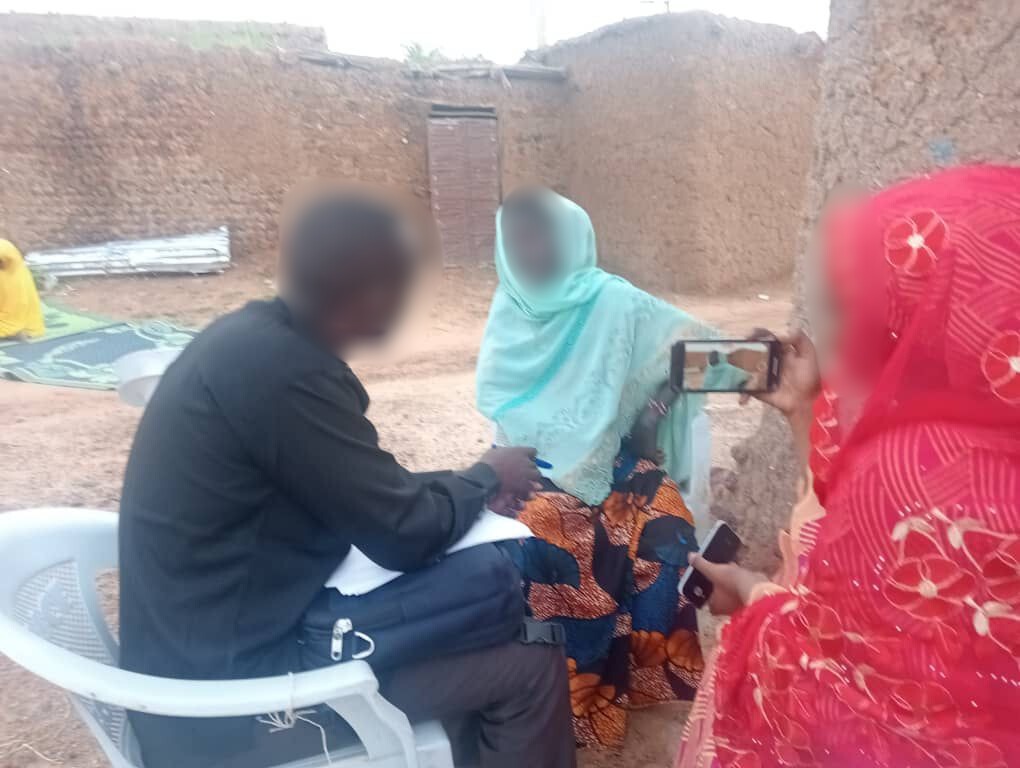Testimonial – Meeting with a Blacksmith from the Tuareg community in Niger
Editor's note: Across West Africa, several ethnic groups, including the Tuareg, Wolof, Mandinka, Bambara, Fulani, Soninké, Hausa, and Zarma, maintain rigid social hierarchies often described as caste systems. In these societies, the ‘nobles' are regarded as freeborn, while ‘slaves,' descendants of captive slaves and the slave trade, continue to face discrimination and remain vulnerable to both modern and traditional forms of slavery.
Additionally, some communities are categorized into castes based on hereditary occupations considered “impure,” such as ‘griots,' ‘smiths,' and ‘leatherworkers,' collectively referred to as “occupational and artisan castes.” These groups are viewed as of ‘low status.'
Although these discriminated communities lack a unified identity and are known by different names across ethnic groups and countries, the French term ‘casted people' (‘gens de caste,' ‘casté') is often used. The Gambia, Niger, Mali, and Mauritania are among the most affected countries.
The Tuareg society, like, say, the broader Indian society, practices caste-based discrimination but is not itself classified as CDWD (Communities Discriminated on Work and Descent). Within Tuareg communities, those belonging to the “descendants of slaves” and the “occupational and artisan castes” (such as blacksmiths) are the ones subjected to this discrimination, while the so-called “nobles” are the ones enforcing it.
To clarify, Mr. Obaz, the person whose testimony follows this text, comes from a Tuareg society but belongs to the “occupational and artisan caste” (blacksmith), making him CDWD. He remains in servitude to the “noble” Tuareg families within his community.
In West Africa, there is no unified term like “Dalits” to designate all CDWD within various ethnic groups, including the Tuareg. This lack of a common identity often leads to the mistaken assumption that the Tuareg, as a whole, are CDWD, which is not the case. While the Tuareg society practices discrimination, only specific groups within it are CDWD. This distinction is crucial for understanding the dynamics of discrimination in the region.
My name is Zeinabou. I am a Rights Expert with the GFoD, and today I would like to share a short discussion I had with a certain Mr. Obaz (name changed to protect identity) on the subject of human rights after a training session on the use of the UDHR to raise awareness among communities discriminated against in terms of work and descent.

Lossougoungou is a district of Niamey where I met Mr. Obaz on 23 July 2024 at a Tuareg wedding. He was serving tea to the Tuareg chiefs gathered for the event. That's when I met him, and we started talking.
In some cultures, blacksmithing is often associated with a particular caste or social status. For example, in Niger and other African countries, blacksmiths may be perceived as belonging to an inferior caste. This perception is rooted in traditions that stigmatize their trade due to historical or cultural beliefs.
As blacksmiths, craftsmen are often limited in their social and professional interactions. Despite their know-how and expertise, they can face discrimination that prevents them from participating fully in the economic and social life of their community. This stigmatization can take the form of a lack of work opportunities, negative prejudice, and even exclusion from certain social activities.
For example, the caste status of blacksmiths, which should be a recognition of their essential role in society, often turns into a source of discrimination, preventing them from enjoying the same rights and privileges as other groups. This situation highlights the importance of awareness-raising and education in combating prejudice and promoting equality.
We started our discussion with introductions, and then I asked if he did this job every day. He answered affirmatively and with conviction, pointing out that he had been serving Tuareg families for over 20 years. I wanted to know if he did it out of obligation, because usually during ceremonies or gatherings, this task is entrusted to young boys from the family or the neighborhood. However, Mr. Obaz, who is around sixty years old, assured me that this was not the case. He explained that it was a responsibility he had taken on since his youth, and that his father, grandfather, and great-grandfather had all done the job. He added that it was all he knew how to do and that he was “born to do it.”
Although he was originally from the Tahoua region, he had followed the Tuareg elites to Niamey, where he regularly accompanied the traditional chiefs, preparing tea for them. I suggested to him that this was an obligation for him, but he replied that nobody was forcing him and that he couldn't imagine letting someone else serve tea to these Tuareg chiefs when he was present. He added that this was the way things should be and that it would be up to his son to take over after him.

After he had shared all this with me, I replied by asking him if he was aware that he had the right to choose another path, another destiny for his life and that of his son and his descendants. I explained to him that no one has the right to monopolize his life or determine what he was born to do. He looked at me and replied, saying that he heard people say things like that in Niamey, but that he felt fine the way he was. I replied that he knew that all human beings are born free and equal in dignity and rights. He pointed out to me that he was aware of all these rights and then added that concerns about rights didn't interest them at all, because they were happy with their current situation. They lived well as long as his family had somewhere to live and could find enough to eat; that's really what mattered to him.
Obaz's story illustrates a common phenomenon in hierarchical societies, where victims of discrimination or oppression end up accepting and internalizing their place in the system. Obaz, despite his awareness of his rights, has integrated this social structure as a blacksmith and servant of the Tuareg chiefs, a trade inherited from his ancestors. His attachment to this function, which he considers a natural duty, shows how the repetition of social roles and the absence of questioning perpetuate these systems.
His passive acceptance of his role stems from a normalization of inequality in his community, where individuals like Obaz prefer the comfort of continuity to the unknown of change. This response to the social hierarchy is a striking example of a form of self-oppression, where the individual, although aware of the rights that could enable him to break free, chooses to remain within the social framework that has been imposed on him, by habit or tradition. This situation highlights the profound impact of social structures on identity and self-perception, and the importance of initiatives aimed at raising awareness to break these cycles of inequality.
Also Read: Climate change impact CDWD extensively, says UN Special Rapporteur Dr Surya Deva


